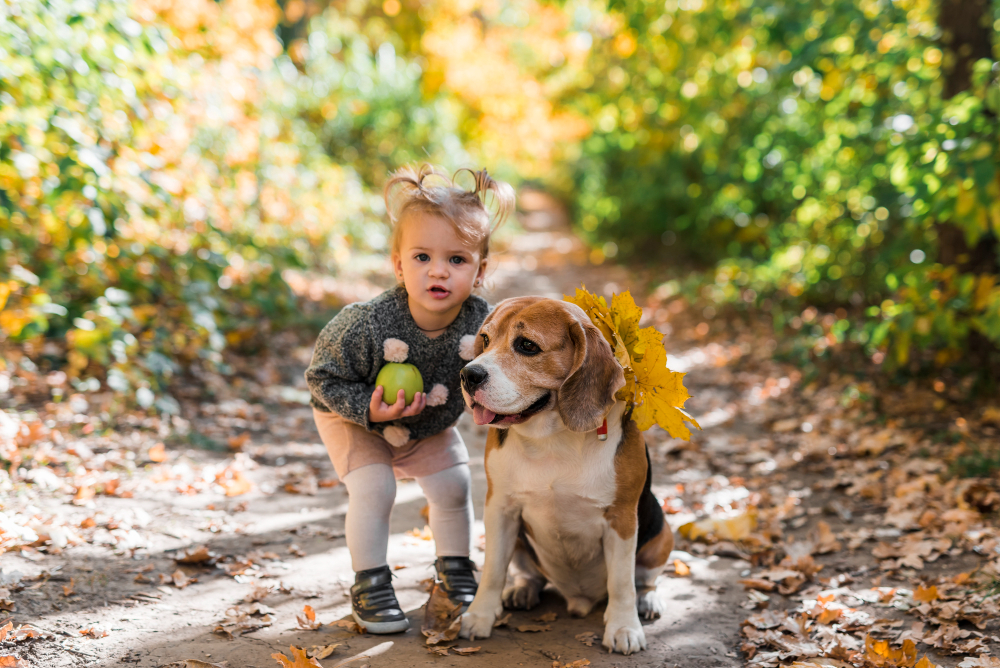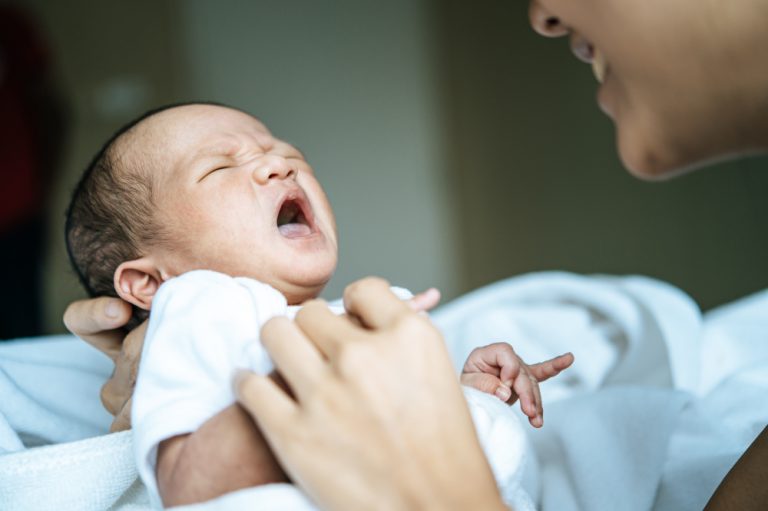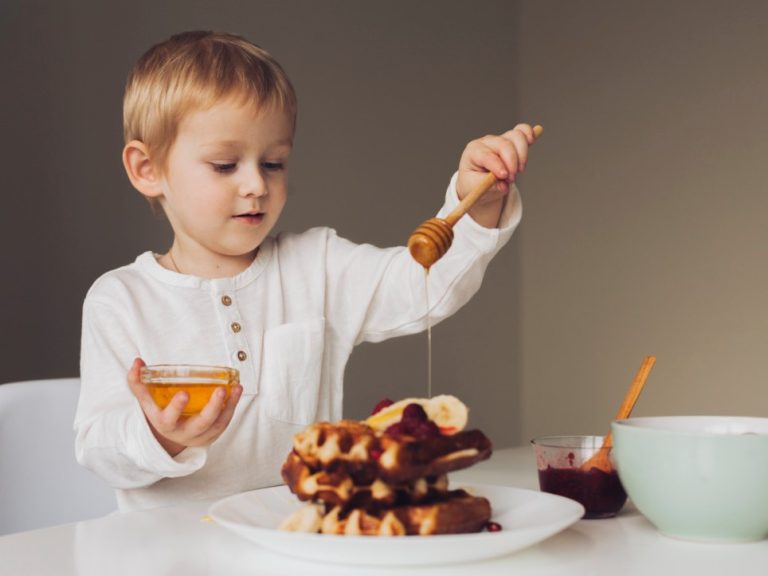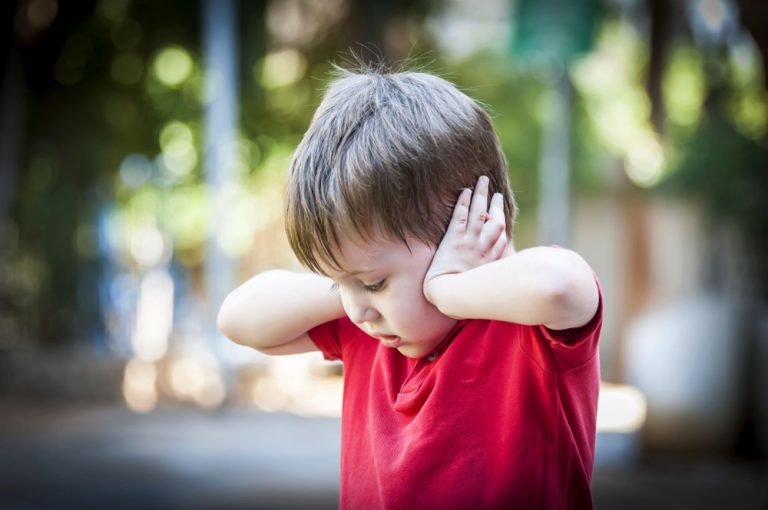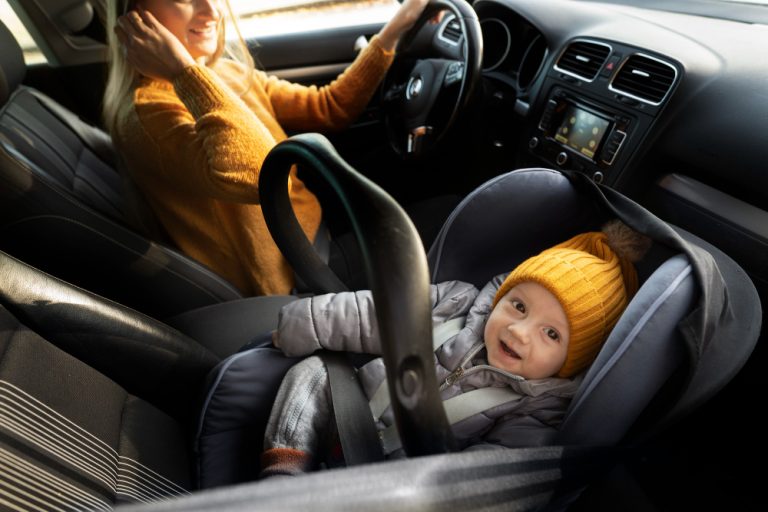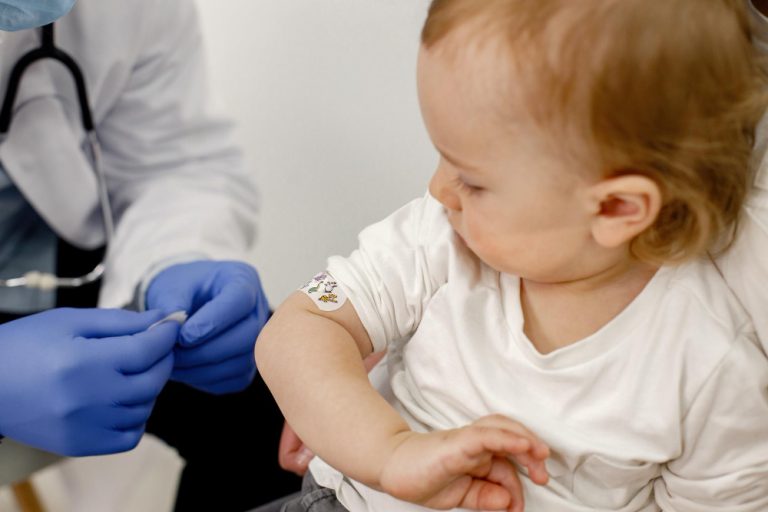How Do Dogs Know To Be Gentle With Babies? Dogs and Babies
Have you ever found yourself mesmerized by the heartwarming bond between a dog and a baby? Have you ever wondered how these furry creatures seem to inherently know how to be gentle around our littlest family members?
Why do they wag their tails and nuzzle so carefully? Is it all just instinct or is there something more to it?
And the burning question: How do dogs know to be gentle with babies?
Join us on an exciting journey as we explore the fascinating world of dogs and babies. We’ll uncover the secrets behind this unique relationship, and delve into the reasons behind dogs’ instinctual protective nature when it comes to human infants.
Get ready to be amazed by the profound impact these furry friends have on the development and well-being of infants. Let’s celebrate the undeniable connection between dogs and babies that highlights the purest form of love and companionship.
How Do Dogs Know To Be Gentle With Babies?

Dogs have a remarkable ability to be gentle with babies, which can be attributed to both instinctual and learned behaviors.
Here are some reasons how do dogs know to be gentle with babies:
1. Instinctual Protective Nature
Dogs naturally have a protective instinct towards vulnerable members of their pack, and this includes human babies. Their keen sense of smell allows them to recognize the unique scent of a baby and triggers their protective instincts.
2. Positive Association
When dogs are introduced to babies from a young age, they form a positive association and learn to be gentle. This early exposure helps them understand that babies are an integral part of the family and should be treated with care.
3. Trust and Socialization
Dogs are social animals and can quickly recognize the body language of babies. Through socialization, they learn to understand a baby’s cues and respond appropriately. Dogs that have been well-socialized with infants are more likely to exhibit gentle behavior.
4. Breed-Specific Gentleness
Some dog breeds are known for their inherent gentleness towards babies. Breeds like Golden Retrievers and Labrador Retrievers, for example, have a reputation for being particularly patient and nurturing with children.
It’s important to note that while most dogs are naturally inclined to be gentle with babies, individual temperament and previous experiences can influence their behavior. Responsible dog owners should always supervise interactions between dogs and babies and seek professional help if needed. By fostering a positive association and providing appropriate guidance, we can ensure a harmonious relationship between our furry friends and our littlest family members.
Remember, when it comes to dogs and babies, their bond is truly special, and the gentle nature of dogs remains one of the most heartwarming aspects of this unique relationship.
How do Dogs Show Interest in Babies?
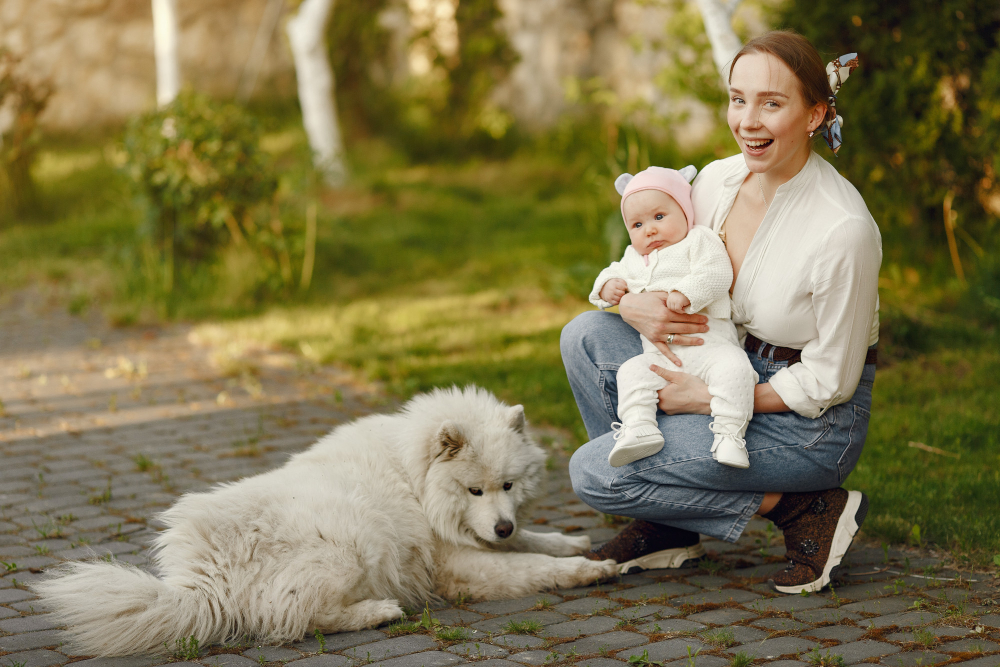
Dogs have a remarkable ability to recognize and show interest in babies. Their keen sense of smell and heightened instincts contribute to their innate capability to understand and respond to the presence of infants. Here are a few ways dogs demonstrate their interest in babies:
Pre-Birth Sensing
Before a baby even arrives, dogs can detect changes in their human’s body language and scent. Many studies have shown that dogs are able to pick up on pregnancy hormones, such as progesterone and estrogen, which alter a person’s scent. This sensitivity allows dogs to anticipate the upcoming arrival of a baby and instinctively adapt their behavior accordingly.
Reactions to Appearance and Scent
When a baby comes home, dogs show their interest through various behaviors. They may approach the baby with caution, sniffing gently to become familiar with their scent. Dogs often display protective instincts, sitting or lying near the baby to keep a watchful eye over them.
Dogs are known for their gentle nature, and this is especially evident when it comes to babies. They tend to be highly attentive and responsive to a baby’s needs, displaying an innate understanding of their vulnerability. It is not uncommon to see dogs gently nuzzling or licking a baby’s face, demonstrating their affection and protective instincts.
In the presence of a baby, dogs often become more relaxed and calm. The sight and sounds of an infant can create a sense of serenity for dogs, prompting them to exhibit their nurturing side. This natural fascination and interest in babies is a testament to the deep bond that can form between dogs and humans.
It is essential for dog owners to closely monitor the interactions between their pets and infants to ensure the safety and well-being of both. Proper socialization, obedience training, and supervision are crucial when introducing a dog to a baby. Seeking professional help and guidance can also be beneficial for a smooth and successful transition.
In conclusion, dogs exhibit a remarkable ability to show interest in babies through their pre-birth sensing and reactions to appearance and scent. This innate behavior showcases the special bond dogs have with infants, emphasizing their unique understanding and gentle nature.
Precautions for Dog Owners
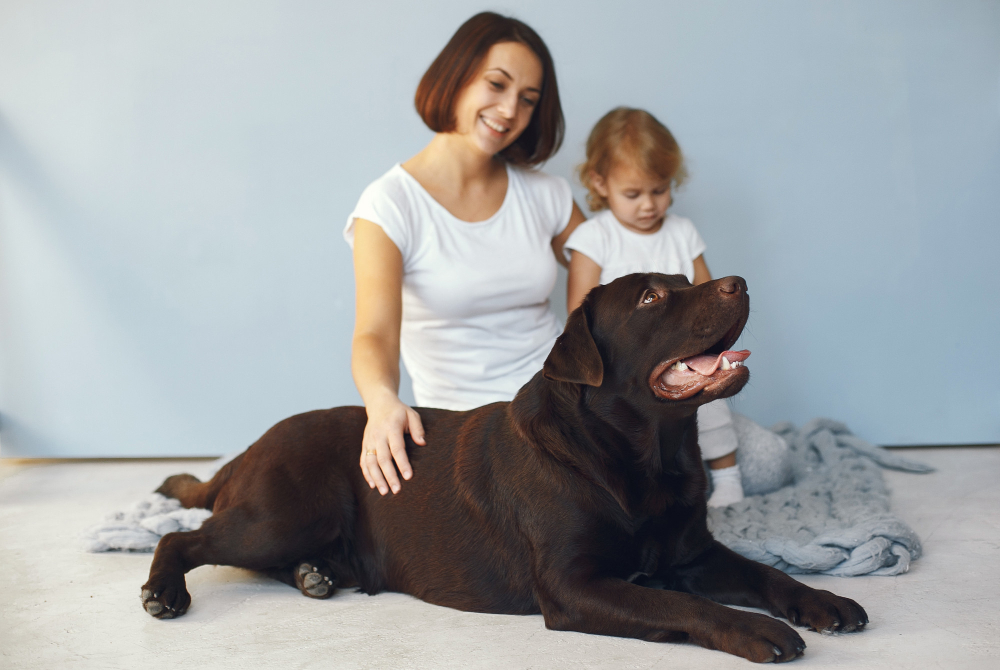
Introducing a new baby to your beloved dog can be an exciting yet potentially challenging experience. Ensuring a smooth and harmonious transition requires careful planning and consideration. Here are some essential precautions and guidelines for dog owners embarking on this adventure:
Transitioning to a baby gate
Installing a baby gate in areas where you and your dog spend time together can create a safe space for both the baby and your four-legged companion. This physical barrier allows for supervised interactions while providing a sense of security. Gradually introduce the baby gate before the arrival of the baby, allowing your dog to become familiar with the concept and adjust accordingly.
Shared space interactions
Supervised interactions between your dog and the baby should be conducted in a calm and controlled manner. Initially, it is advisable to keep the dog on a leash while in the presence of the baby. Monitor their interactions closely, ensuring that the dog remains calm and gentle. Reward positive behaviors such as sniffing the baby with treats or verbal praise, reinforcing the notion that good behavior around the baby is rewarded.
Handling aggression
Aggression can be a significant concern when introducing a baby to a dog. If your dog displays any signs of aggression, it is crucial to seek professional help. Consult with a qualified dog trainer or behaviorist to address any aggressive tendencies, ensuring the safety of your baby.
Remember that each dog is unique, and their reactions to a new baby can vary. Keep a close eye on their body language during interactions, and if you observe signs of discomfort or stress, it is essential to address the situation promptly.
Creating a positive association
Gradually associating positive experiences with the presence of the baby can help your dog develop a positive association with their new family member. Engage in activities such as gentle petting or playing near the baby while supervising closely. This will reinforce the notion that the baby’s presence leads to enjoyable moments and a pleasant environment.
Seeking professional help
In some cases, seeking professional help may be necessary, especially if your dog exhibits excessive anxiety or aggressive behavior towards the baby. A qualified dog trainer or behaviorist can assess the situation and provide tailored guidance to ensure the safety and well-being of both the dog and the baby.
By taking these precautions and following the advice of experts, you can create a smooth transition when introducing your baby to your dog. Remember, the goal is to foster a loving and trusting bond between them, ensuring a harmonious environment for all family members.
In Conclusion, Why Do Dogs Like Babies?
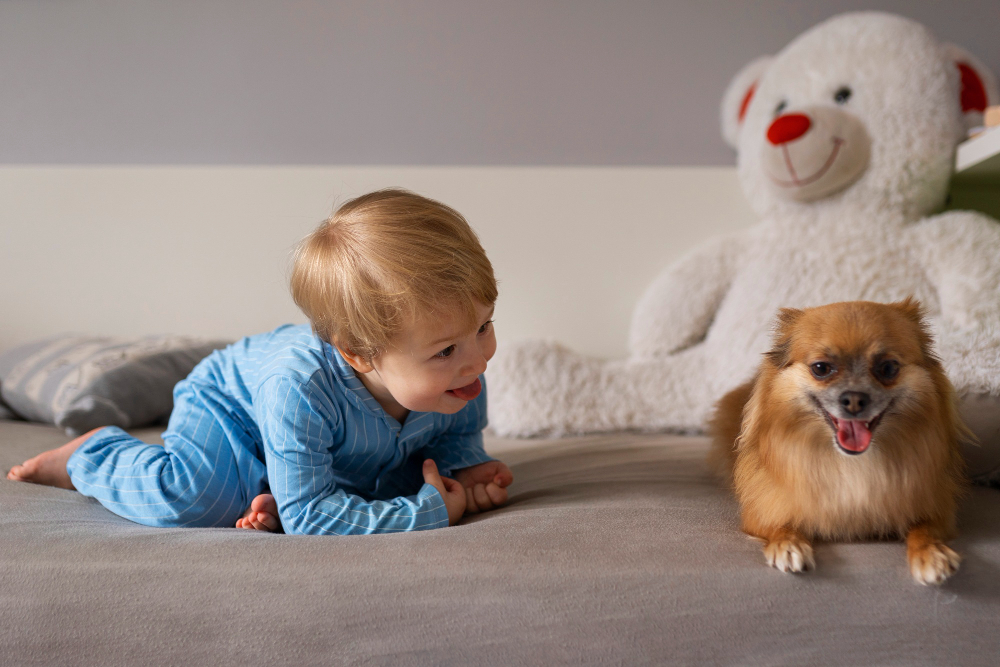
After exploring the fascinating world of dogs’ gentle behavior towards babies, it becomes clear that there are several factors contributing to this heartwarming bond. Dogs possess a unique instinctual and learned behavior that enables them to be gentle with human infants.
- One reason dogs are drawn to babies is their pack animal nature.
- Being a part of a social group, dogs have an innate desire to protect and care for vulnerable members, just like they would in their wild pack.
- Additionally, dogs are highly attuned to the body language and cues of humans, including babies, allowing them to respond with care and gentleness.
Scientific studies have shown that dogs and babies have a positive feedback loop. When a dog interacts gently with a baby, both the dog and the baby experience an increase in dopamine levels, creating a sense of joy and bonding. This reinforces the dog’s gentle behavior and strengthens their emotional connection with the baby.
Furthermore, dogs have a keen sense of smell, and they can detect the unique scent of a baby, even before birth. This pre-birth sensing helps dogs form a special interest in babies, as they recognize them as a new and important addition to the family.
Dogs also respond positively to the high-pitched sounds and movements that babies make, finding them endearing.
The bond between dogs and babies goes beyond physical attributes. Dogs have shown better cognitive abilities when interacting with babies, showcasing their understanding and adaptability to the needs of the little ones.
This deeper level of comprehension allows dogs to be more gentle and attentive, fostering a strong and harmonious relationship with the youngest family members.
In summary, dogs like babies because they align with their protective nature, offer positive experiences, and fulfill their need for social interaction. This unique connection is built on trust, love, and the joy that comes from caring for a vulnerable and innocent family member. Dogs truly demonstrate their incredible ability to be gentle and nurturing, making them cherished companions for both young and old.
Why do dogs know to be gentle with babies?
Dogs have a remarkable ability to sense and respond to the vulnerability of human babies. While individual dogs may have variations, this gentle behavior is often seen across different breeds. Various factors can explain dogs’ instinctual gentleness with babies.
Instinctual Behavior and Pack Mentality
Dogs are naturally pack animals, and within their social structure, the youngest members of the pack require special care and protection. When dogs interact with human babies, they perceive them as part of their pack and feel responsible for watching over and safeguarding them.
This instinctual protective nature stems from dogs’ evolved behavior to ensure the survival and well-being of their vulnerable family members.
Positive Association and Conditioning
Another important aspect of dogs’ behavior with babies is the positive association they form. When a family dog is introduced to a newborn, the initial interactions are often accompanied by praise, rewards, and positive attention from the parents.
This creates a feedback loop in the dog’s mind, associating the presence of the baby with positive experiences and reinforcing their gentle behavior.
Sensory Perception and Familiarity
Dogs have a keen sense of smell, allowing them to detect subtle changes in hormonal levels and the scent of a newborn. They can sense the unique scent of a human baby, which triggers their curiosity and interest.
Dogs also pay close attention to the body language and vocal cues of babies, enabling them to gauge their level of comfort and respond accordingly.
Empathy and Bonding
The strong bond between dogs and humans extends to the youngest family members. Dogs possess a remarkable ability to empathize and connect with their human companions, including infants.
They can sense a baby’s vulnerability and respond with care and gentleness. This empathetic response is rooted in the genuine happiness dogs feel when in the presence of their loved ones, infants included.
It is essential for dog owners to understand and appreciate the natural inclination of dogs to be gentle with babies. However, introducing a newborn to a family pet should always be done with caution and under supervision. If any concerns or issues arise, seeking professional help to ensure a safe and harmonious relationship between dogs and babies is always recommended.
Ultimately, the gentle behavior exhibited by dogs towards babies is a testament to the deep bond and trust that exist between these remarkable creatures and us humans.
Why do dogs trust us with their babies?
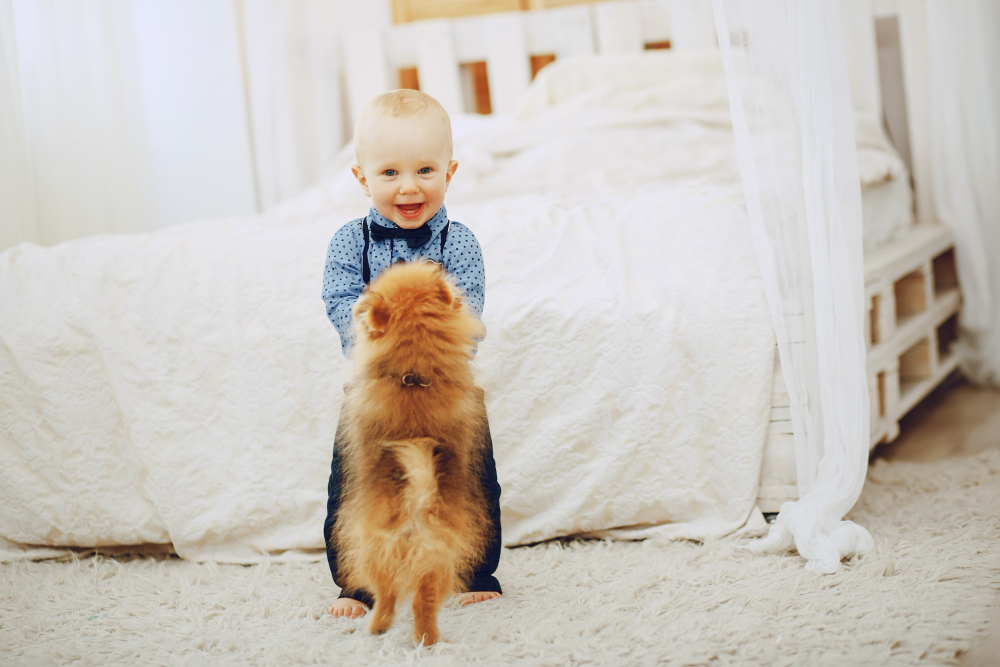
Dogs have an extraordinary ability to form strong bonds with humans, and this extends to the trust they place in us with their precious puppies. Understanding why dogs trust us with their babies involves exploring their evolutionary and instinctual behaviors.
Instinctual Protective Nature
Dogs, as pack animals, have a natural instinct to protect their young. This instinctual behavior stems from their primal need to ensure the survival of their offspring. This protective nature carries over to their interactions with human babies, as they perceive them as vulnerable family members.
Trust through Positive Associations
When dogs see us caring for and nurturing their puppies, they develop a sense of trust and understanding. Dogs are highly perceptive animals, and they observe our actions and responses. When we handle their babies with tenderness and provide positive feedback, they associate us with safety and comfort.
Shared Bond and Familiarity
Dogs and humans share a unique bond built over centuries of domestication. Dogs have learned to recognize human cues and respond accordingly. This shared understanding creates a sense of familiarity and trust, which enables dogs to trust us with their babies.
Oxytocin and Emotional Connection
Studies have shown that when dogs interact with human babies, both the dogs and babies experience an increase in oxytocin levels. Often referred to as the “love hormone,” oxytocin promotes feelings of bonding and attachment. This chemical release builds an emotional connection between dogs and babies, fostering trust.
In conclusion, dogs trust us with their babies due to a combination of their instinctual protective nature, positive associations, shared bond, and the emotional connection formed through oxytocin release. It is a testament to the deep trust and love that dogs have for their human companions.
Do dogs like to be cradled?
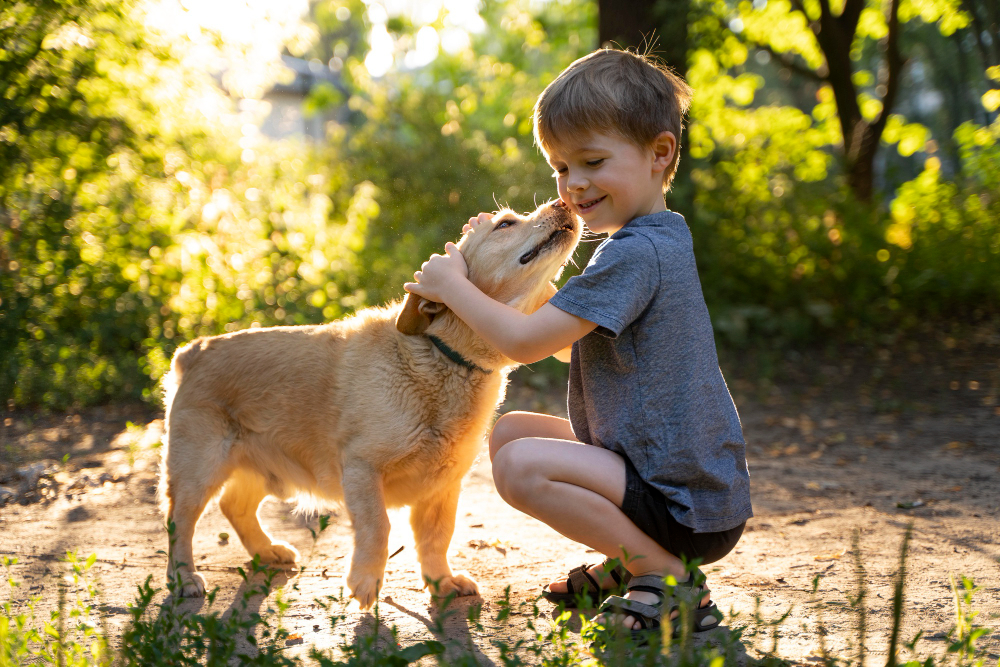
Dogs have their unique preferences and comfort levels when it comes to physical contact, including being cradled. While some dogs may enjoy being cradled and find it soothing, others may feel uncomfortable or distressed in this position. It ultimately depends on the individual dog’s personality, past experiences, and breed tendencies.
Factors influencing a dog’s response to being cradled
1. Breed-specific tendencies
Certain breeds, such as toy breeds or companion breeds, may be more accustomed to being handled and may find cradling more enjoyable.
2. Past experiences
Dogs who have been positively exposed to being cradled as puppies or have had pleasant experiences during veterinary examinations may be more comfortable with this form of physical contact.
3. Body sensitivity
Dogs with heightened sensitivity to touch or certain body areas may not appreciate being cradled, as it may trigger discomfort or anxiety.
4. Individual preferences
Just like humans, dogs have their own personal preferences. Some may prefer other forms of physical affection, such as cuddling or belly rubs, over being cradled.
Understanding your dog’s comfort level
It’s important to observe your dog’s body language and reactions when attempting to cradle them. Look for signs of relaxation and enjoyment, such as a loosely wagging tail, soft eyes, and a relaxed body posture.
If your dog appears tense, attempts to escape, or shows signs of stress (e.g., lip licking, panting, or yawning), it’s a clear indication that they are not comfortable with being cradled.
Respecting your dog’s boundaries
Always prioritize your dog’s comfort and well-being. If they do not enjoy being cradled, respect their boundaries and find alternative ways to show affection. This could include gentle petting, sitting or laying beside them, or engaging in interactive play.
Remember, every dog is unique, and it’s crucial to understand and honor their individual preferences when it comes to physical contact.
In conclusion, while some dogs may enjoy being cradled, it is not a universal preference. Respect your dog’s individuality and always prioritize their comfort and happiness. Pay attention to their body language and reactions to ensure that all forms of physical contact are enjoyable and positive experiences for both you and your furry companion.
Why are dogs so protective of human babies?

Dogs have long been known for their loyalty and protective nature, and when it comes to human babies, their instincts kick into high gear. The reasons behind dogs being so protective of human infants are multifaceted and fascinating.
Instinctual Protective Nature
As pack animals, dogs have a natural instinct to protect vulnerable members of their group. Human babies, with their small size and limited abilities, are considered the most vulnerable family members.
This instinctual protection stems from a deep love and connection between dogs and human infants. Dogs sense the innocence and purity of babies, triggering an innate drive to guard and care for them.
Bond and Trust
The bond between dogs and human babies develops from an early age. Dogs perceive babies as a part of their own pack or family. Dogs have a keen sense of smell, allowing them to detect the unique scent of infants.
This familiarity, coupled with the positive feedback loop created by a baby’s cooing and gentle touch, strengthens the bond between them.
Hormonal Influences
When a dog interacts with a human baby, both the dog and the baby experience the release of oxytocin, often referred to as the “love hormone.”
This hormone plays a crucial role in bonding and establishing trust, fostering a sense of genuine happiness and thoughtfulness in the dog’s behavior towards the baby.
Protective Behavior
Dogs manifest their protective nature in various ways. They exhibit gentle behavior, such as standing guard over a sleeping baby or maintaining a safe distance when the baby is being cradled.
Dogs also possess a keen sense of perception and can pick up on subtle cues from the baby’s body language. They quickly learn to interpret the baby’s needs and respond accordingly, creating a nurturing environment for the child.
In conclusion, dogs’ protective behavior towards human babies is a remarkable phenomenon that showcases the unique bond and trust between these two species. Their instincts, combined with the love and connection they feel towards human infants, drive dogs to go the extra mile in caring for and safeguarding the youngest members of our families.
The Final Note: How Do Dogs Know To Be Gentle With Babies
Have you ever wondered, “How Do Dogs Know To Be Gentle With Babies?” It’s truly fascinating how dogs have an innate ability to sense vulnerability and respond with kindness towards infants. Dogs are naturally protective and nurturing creatures, and they often display gentle and caring behavior towards babies.
However, it’s important to remember that individual temperament and previous experiences can influence a dog’s behavior towards babies. So, responsible pet ownership, including proper socialization and supervision, is crucial to ensure the safety and well-being of both dogs and infants.
FAQs: How Do Dogs Know To Be Gentle With Babies?
Let’s celebrate the purest form of love and companionship between dogs and babies, and continue to foster a positive and harmonious relationship between our furry friends and our littlest family members. “How Do Dogs Know To Be Gentle With Babies?” is truly a remarkable bond that we should cherish and appreciate.

